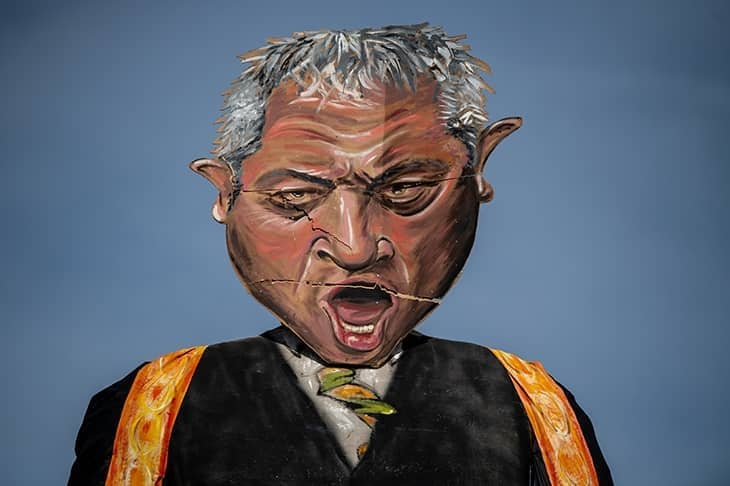The ex-Speaker John Bercow has been found to be a serial bully and serial liar. The ancients would have had views on both counts.
Bercow’s bullying seems to have arisen from his uncontrollable temper. The philosopher Seneca (an adviser to Nero) painted a memorable picture of the physical results: ‘The eyes blaze and flash, the whole face is crimson, blood surges up his heart, the lips quiver, the teeth clench, the hair bristles, breathing is forced and harsh…’ (Seneca would have suggested showing Bercow a mirror).
The result was a total and shameful loss of self-control and of judgment, and refusal to face facts: ‘However much truth is piled up before an angry man’s eyes, he refuses to be convinced, counting persistence more honourable than penitence.’ Very Bercow.
Training was the solution. Socrates, we are told, if he felt such anger ‘arising in him like a storm along a promontory’, would ‘lower his voice, bring a smile to his face and soften his expression, creating in himself an influence to counteract his emotions’. As Aristotle saw, the sooner such training began, the better: ‘It makes no small difference whether we form habits of one kind or another from our very youth; it makes a very great difference, or rather, it makes all the difference.’ Bit late for the bully?
As for lying, Socrates thought it acceptable only if it prevented palpable harm (e.g. to deal with a madman wielding a knife). Plato agreed, but approved of politically controlled ‘noble’ lies which kept the state in order (he regarded most fiction – i.e. myths and poetry – as ‘lies’). As usual, Aristotle distinguished between various types of lying, but thought that lying to enemies was acceptable (as most Athenians did), as long as it preserved one’s particular interests.








Comments
Join the debate for just £1 a month
Be part of the conversation with other Spectator readers by getting your first three months for £3.
UNLOCK ACCESS Just £1 a monthAlready a subscriber? Log in